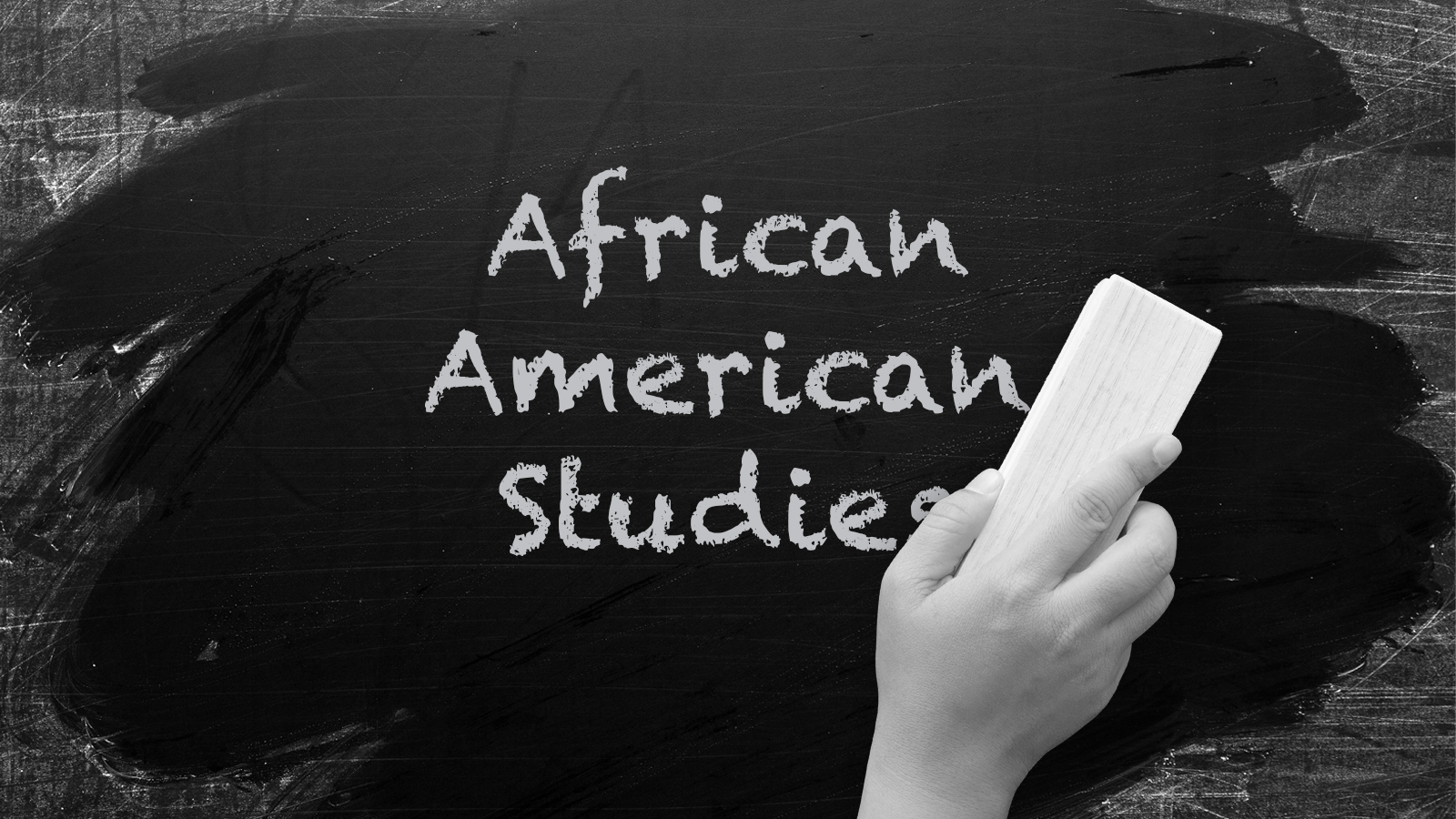Did Ron DeSantis 'whitewash' an AP African American studies course?
The sharpest opinions on the debate from around the web


The College Board this week released the official framework for its new Advanced Placement course in African American studies. An early rundown of possible content, initially outlined in August, had drawn sharp criticism from Gov. Ron DeSantis (R), who has made overhauling higher education in the state and purging what he calls "woke ideology" a priority for his government. The College Board removed much of the material DeSantis complained about from the required curriculum, including the names of many Black writers, scholars, and course units associated with critical race theory, the queer experience, Black feminism, and the Black Lives Matter movement.
David Coleman, the head of the College Board, told The New York Times the changes came in response to "the input of professors" and "longstanding AP principles," suggesting complaints from DeSantis and other conservative politicians didn't influence the decision. "At the College Board, we can't look to statements of political leaders," he said. Civil rights activists disagreed. David J. Johns, executive director of the National Black Justice Coalition, said the College Board, a nonprofit that oversees AP offerings as well as the SAT testing, "capitulated" to what he called DeSantis's "extremist anti-Black censorship." Is the College Board keeping politics out of the classroom, or letting DeSantis dictate what students learn about Black history?
The College Board let DeSantis bully it
DeSantis' attack on this new AP course's curriculum "was ridiculous and disturbing," says Jess Levin in Vanity Fair, "but not at all surprising given that DeSantis has spent his time in office signing one absurd law after the next." He has pushed through one piece of legislation he says targets "woke" politics that is an "obvious intent is to ban conversations that could result in white people feeling bad about systemic racism," and another that critics have dubbed the "Don't Say Gay" law against teaching young students about sexual identity.
The Week
Escape your echo chamber. Get the facts behind the news, plus analysis from multiple perspectives.

Sign up for The Week's Free Newsletters
From our morning news briefing to a weekly Good News Newsletter, get the best of The Week delivered directly to your inbox.
From our morning news briefing to a weekly Good News Newsletter, get the best of The Week delivered directly to your inbox.
The alarming part of this story is that the College Board "completely bowed to his demands — and extremely quickly at that!" The nonprofit's insistence that politics played no part in the decision is bunk. According to The New York Times, the writers and academics barred from the curriculum include Kimberlé W. Crenshaw, a Columbia professor whose work has been "foundational in critical race theory," and author Ta-Nehisi Coates, "who has made a strong case for reparations." More than 200 African American studies teachers said in a Medium post this gutting of the course amounts to "censorship and a frontal attack on academic freedom... Happy Black History Month."
Keeping neo-Marxist nonsense out of this course keeps it free of woke politics
DeSantis is the one trying to keep politics out of the classroom, says Rod Dreher in The American Conservative. He took a stand against the "woke commissars" because he was "not going to allow the AP course to propagandize Florida students for tendentious, highly ideological reads on black history, under the guise of teaching about Black history (which he fully supports)."
The "bad guys" in this clash are the ones trying to intimidate educators, lawmakers, and the College Board by spreading the "lie" that "if you don't give these ideological culture warriors everything they want, then you must be a BIGOT." DeSantis is "doing his job: making sure that the public school students of Florida aren't forced to read neo-Marxist propaganda as history."
Keeping marginalized voices out of the classroom erases history
The silencing of marginalized voices in this course is part of an "unrelenting assault" Florida is leading against "truth and freedom of expression," says Janai Nelson, president and director-counsel of the Legal Defense Fund, in The New York Times. The goal is to "suppress the viewpoints, histories and experiences of historically marginalized groups, especially Black and L.G.B.T.Q. communities." Eliminating any discussion of "queer theory," for example — as DeSantis demanded — denies "the need for future generations to learn about the contributions of queer Black American icons like Pauli Murray, Bayard Rustin, Audre Lorde, and James Baldwin."
A free daily email with the biggest news stories of the day – and the best features from TheWeek.com
"The losses to our nation, if this broad attack on our shared history is allowed to continue, are incalculable." Surrendering will "breed a generation of Americans indoctrinated by ignorance" and deprived of "the analytical skills to understand the complex history of this experimental democracy, as well as the historical grounding to sustain it." If high schools are forced to ignore parts of Black history just because they make some people uncomfortable, students will show up at college "wholly ill-equipped to engage with the historical foundations of this country, which include and are inextricable from the history of Black Americans."
The College Board removed radicalism, not history
The final curriculum definitely marks "a major victory" for DeSantis, says Stanley Kurtz in National Review. The College Board has removed "pretty much all of the critical race theory (CRT), and the lion's share of socialist agitation." A proposed topic "devoted to Frantz Fanon's glorification of violence — and its influence on black radicals in America" is gone. So are a topic that "one-sidedly excoriated American foreign policy in Haiti," and units on black queer studies, "reparations, prison abolition, intersectionality," and "the socialist platform of the Movement for Black Lives. It's "still a left-biased course," but at least now the "contemporary political controversies" are just optional topics for a paper, not mandatory material for the exam.
The danger goes far beyond the content of a single AP course
This controversy wasn't just about the lessons to be taught in a single AP course, says Becky Pringle in USA Today. The real agenda of DeSantis and other conservative politicians trying to interfere in the classroom is to "first whitewash and then dumb down public education as an excuse to privatize it. His ultimate goal? The destruction of public education, the very foundation of our democracy." But "parents, students, educators, and yes, voters," won't let this happen. "Preparing students with more knowledge, not less, is essential for an America that prides itself in having a free marketplace of ideas."
Harold Maass is a contributing editor at The Week. He has been writing for The Week since the 2001 debut of the U.S. print edition and served as editor of TheWeek.com when it launched in 2008. Harold started his career as a newspaper reporter in South Florida and Haiti. He has previously worked for a variety of news outlets, including The Miami Herald, ABC News and Fox News, and for several years wrote a daily roundup of financial news for The Week and Yahoo Finance.
-
 Exploring ancient forests on three continents
Exploring ancient forests on three continentsThe Week Recommends Reconnecting with historic nature across the world
-
 The rise of the spymaster: a ‘tectonic shift’ in Ukraine’s politics
The rise of the spymaster: a ‘tectonic shift’ in Ukraine’s politicsIn the Spotlight President Zelenskyy’s new chief of staff, former head of military intelligence Kyrylo Budanov, is widely viewed as a potential successor
-
 How oil tankers have been weaponised
How oil tankers have been weaponisedThe Explainer The seizure of a Russian tanker in the Atlantic last week has drawn attention to the country’s clandestine shipping network
